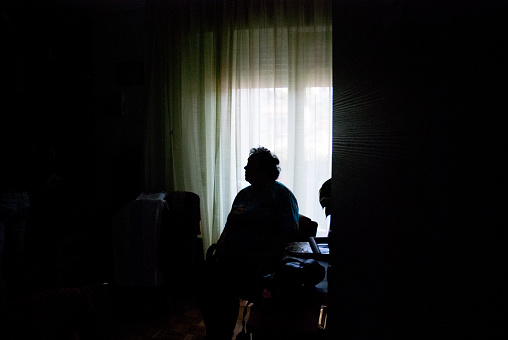Many nursing homes are understaffed due to fewer people working at them since the start of the pandemic last year, according to a recent study based on the latest jobs report from the U.S. Bureau of Labor Statistics.
Staffing shortages have sparked concerns among nursing home abuse and neglect lawyers and experts, who fear residents might not be receiving the care they deserve and their health could be at risk.
Since February 2020, nursing homes nationwide have lost 380,000 total employees.
“I’ve been in the industry for 40 years and I’ve never seen it this bad,” Terry Robertson, a chief executive for a Washington state long-term care facility, said in a recent interview with The Wall Street Journal. “We turned down 138 admissions from hospitals last month because we didn’t have the staff to open another unit.”
A recent survey conducted by the American Health Care Association found that 94% of nursing facilities are short-staffed, which is often an underlying cause of nursing home abuse and neglect.
Worst of all, the problem only seems to be getting worse. The same survey found that 73% of nursing homes reported that staffing shortages were worse this year compared to last year.
Why Are Nursing Homes Understaffed?
According to executives and workers interviewed by The Wall Street Journal, a lot of nursing home employees have quit in the past year due to low pay, burnout, and fear of contracting the coronavirus, which has hit nursing homes and assisted living facilities especially hard in the past year.
Nationwide, nearly one-third (31%) of all COVID-related deaths in the United States have been linked to nursing homes, according to the latest statistics compiled by The New York Times.
In Alabama, that figure is 12%.
“When you’re short on people, you have to work extra because someone has to be there to take care of the residents. You work and you work and after a while you just get burned out,” said Sheena Bumpas, a nursing assistant in a dementia unit at a long-term-care facility in Duncan, Okla., in an interview with The Wall Street Journal.
How To Know If A Nursing Facility Is Safe
Several studies have found that understaffed nursing homes provide inadequate care for nursing home residents. In particular, The Wall Street Journal reported that residents in understaffed nursing homes often have to wait longer to be fed, brought to the bathroom, and receive responses to their calls for assistance. Moreover, nursing facilities that are short-staffed often fall into disrepair, which creates an environment for slip, trip, or fall accidents.
“We see staffing shortages as a safety hazard and a quality problem,” Ari Houser, a statistician for the AARP Public Policy Institute’s nursing-home data dashboard, told The Wall Street Journal.
One of the best ways to know if a nursing home or assisted living facility is safe is to be aware of the warning signs, such as:
- Unsanitary conditions
- Residents have frequent infections or illnesses
- Nursing home restricts visiting hours
In addition, you can look up whether a nursing home has been cited or fined for health or safety violations. Pro Publica lists violations for nursing homes by city and state. In Mobile, Alabama, the following nursing homes have been cited for “total deficiencies” since 2017:
- Allen Health and Rehabilitation (9 total deficiencies)
- Twin Oaks Rehabilitation and Healthcare Center (3 total deficiencies)
- Mobile Nursing and Rehabilitation Center (3 total deficiencies)
- Palm Gardens Health and Rehabilitation LLC (8 total deficiencies)
- Springhill Manor Nursing Home (5 total deficiencies)
- Crowne Health Care Health of Mobile (8 total deficiencies)
- Ashland Place Health and Rehabilitation LLC (11 total deficiencies)
- Gulf Coast Health and Rehabilitation LLC (9 total deficiencies)
- Knollwood Healthcare (17 total deficiencies)
- Azalea Health and Rehab LLC (6 total deficiencies)
- Little Sisters of the Poor Sacred Heart Residence (2 total deficiencies)
- Crowne Health Care of Springhill (2 total deficiencies)
- Kensington Health and Rehabilitation (16 total deficiencies)
- Lynnwood Nursing Home (10 total deficiencies)
- Springhill Senior Residence (5 total deficiencies)
- Knollwood Healthcare (2 total deficiencies)
If You Suspect Elder Abuse Or Neglect, An Attorney Can Help
There are several steps you should take right away if you believe your loved one is being neglected or abused in an Alabama nursing home:
- Have an independent medical professional examine your loved one right away. Some medical issues involving nursing home residents, like sepsis or infected bedsores, can be life-threatening if they are not treated in a timely manner.
- Keep copies of all medical records or other official documents (prescription medications, bills from doctors, etc.) related to your loved one’s injury or illness.
- Report the abuse or neglect to the nursing home. You can do so verbally or in writing. Doing so in writing will create an official record of your complaint.
- Contact the local police department in the community where the nursing home is located to report your concerns.
- Report the abuse or neglect to Alabama’s Long-Term Care Ombudsmen, the official state agency that investigates claims of neglect or abuse in nursing homes.
- Contact a nursing home abuse lawyer as soon as possible to go over your legal options.
Having an experienced attorney investigate your complaint can often make a dramatic difference in the outcome of your civil case. At Braswell Murphy, LLC in Mobile, our dedicated legal team has years of experience investigating allegations of elder abuse and neglect. As a result, we’re prepared to help you find answers and fight to hold the negligent nursing facility accountable for its actions.
Let us help you pursue the justice and financial compensation you’re entitled to. Contact us today to schedule a free case evaluation with an experienced Alabama nursing home abuse lawyer.


